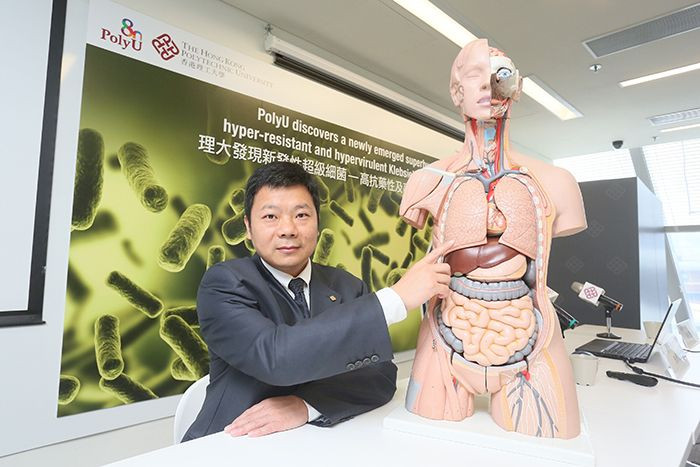New Antibiotic-Resistant Superbug May Be Deadly To Healthy People

Scientists have identified a deadly bacteria that is resistant to antibiotics and could be dangerous to even healthy people.
It started when a group of five patients in the intensive care unit at a hospital in the Chinese city Hangzhou, who all had trauma surgery, contracted severe pneumonia that did not respond to antibiotics called carbapenems, which are generally used as a last resort when other treatments fail. According to a study in the journal The Lancet Infectious Diseases, the patients all were put on ventilators and later “died due to severe lung infection, multiorgan failure, or septic shock.” An investigation after their deaths found that a hypervirulent strain of the bacteria Klebsiella pneumoniae was what killed them.
The patients, who were between 53 and 73 years old, died in spring 2016.
Strains of K. pneumoniae like this one “pose a substantial threat to human health because they are simultaneously hypervirulent, multidrug-resistant, and highly transmissible,” the scientists wrote in their study. “Control measures should be implemented to prevent further dissemination of such organisms in the hospital setting and the community.”
The researchers were not sure how prevalent the hypervirulent strain is.
Hong Kong Polytechnic University warned that the new virulent and antibiotic-resistant strain could represent a threat to even healthy people.
Carbapenem-resistant K. pneumoniae was previously identified as a superbug, which by definition is resistant to treatment. The strain that infected the Chinese patients last year belongs to a type of that superbug called ST11, which the university explains is “the most prevalent and transmissible” type of it in Asia.
Now that this newly emerging strain is found to be hypervirulent, the researchers are calling the strain ST11 CR-HvKP.
“ST11 K. pneumoniae strains proliferate in the gastrointestinal tract of human and animals and may cause opportunistic infections such as pneumonia in clinical settings,” the university said. They become resistant to the carbapenem antibiotics when they acquire a certain DNA molecule that is linked to a gene that produces carbapenemase, an enzyme that breaks down the antibiotics, rendering them ineffective.
The hypervirulent strains of these antibiotic-resistant bacteria “do not only infect lungs and cause pneumonia, but also invade the bloodstream and other internal organs,” Hong Kong Polytechnic said. These strains “may cause untreatable and fatal infections in relatively healthy individuals with normal immunity.”
They can be spread through contact with surfaces — on medical devices in the ICU, for example — and possibly directly from one human to another.
“The transmission route is not clear yet, but our data suggest that medical equipment such as ventilator and different catheters might be transmitting these new superbug strains,” according to the university. “Improved infection prevention and control policy in [the] hospital seems to be effective to control further transmission of this superbug in the ICU.”
Antibiotic resistance is an increasing problem around the globe. In the United States alone, the Centers for Disease Control and Prevention estimate that at least 23,000 people die of drug-resistant infections every year. Many more contract the illnesses but survive.
© Copyright IBTimes 2024. All rights reserved.





















